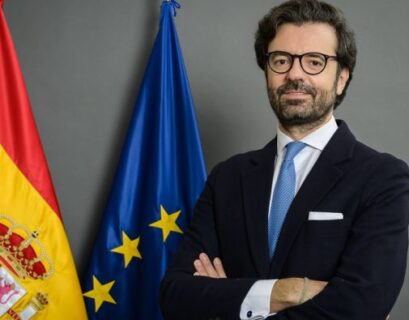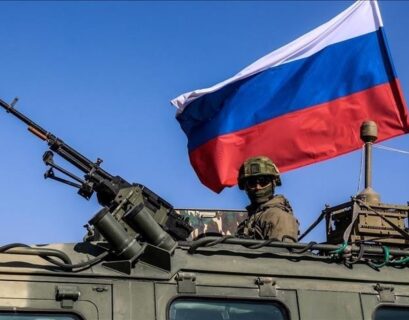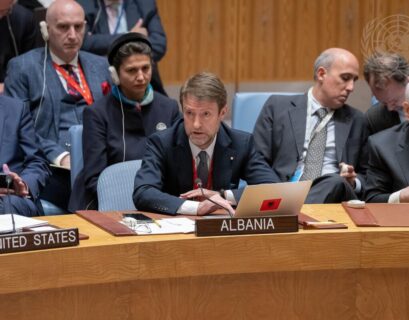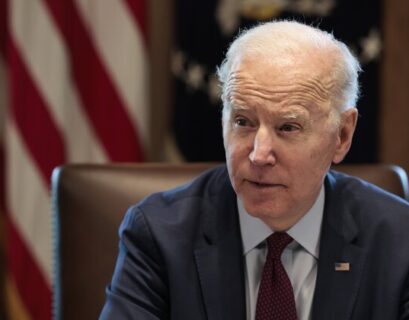VALDRIN UKSHINI
The Brussels talks between Kosovo and Serbia, authorized by the United Nations General Assembly, launched in March, 2011, only months after the advisory opinion of the International Court of Justice (ICJ) on the legality of the declaration of Kosovo’s independence, in July, 2010, gradually deviated from its original purpose. They turned from talks on technical issues into political negotiations. In Belgrade they were misinterpreted and used to contest Kosovo’s statehood and to intensify the diplomatic aggression againts the state of Kosovo. Few years laterSerbia claimed openly that the Brussels negotiations are negotiations on the status. Brussels remained silent and suprisingly stated that it maintained a neutral stance on the status. Belgrade switched to an offensive approach and over the years built the narrative that “one side cannot win everything”, whereas “the other side nothing”.
Looking back at the thirty year long history of Kosovo-Serbia talks, since Geneva meetings in the framework of Conferences on the Former Yugoslavia, in 1992 until now, we can identify a constant refusal of the Serbian authorities to accept an internationally agreed peace accord with Kosovo. Since early 1990s, Belgrade has not implemented any political agreement. It started with rejection of implementation of the 1996 Education Agreement, which resulted in escalation of situation in Kosovo; and carried on with the refusal of the Rambouillet Agreement, which paved the way for the NATO air campaign in March-June, 1999. Even in the post-Milosevic era, Belgrade followed the same discourse, negotiating for months and years in the Vienna negotiations (2006-2007) under the lidership of the former Finnish President, Martti Ahtisaari, but at the end pushed by Russia rejected the Comprehensive Proposal on the final status of Kosovo, as well as any Troika proposals from the US, EU and Russian ambassadors during the additional 120 day negotiations. Furthermore, during the Vienna process, the Serbian side refused the Peace and Good Neighborliness Treaty proposed by the Kosovo delegation. Undoubtedly, if the negotiations were to end according to the known principles of the Contact Group of November, 2005, which were also accepted by the Russian side, in the following years things would develop in the right direction in the negotiations between Kosovo and Serbia and the Ahtisaari Proposal would have been included under the umbrella of the United Nations. As a result, Kosovo’s declaration of independence happened outside the umbrella of this institution. However great political and diplomatic victory for Kosovo took place in July, 2010, when the ICJ confirmed that the Kosovo’s independence is a sui generis case and does not violate the International Law and relavant international documents on Kosovo.
Seen in this timescale, decision of the Kosovo partners to vote on the UN General Assembly the Resolution to start negotiations on technical issues is a harmful compromise for Kosovo. After the confirmation of the legality and lawfulness of Kosovo’s independence, it was time for a final agreement and for a discussion or a resulution through which the issue of Kosovo’ membership in the UN would be raised. And not for continuing the dialogue in the format planned by the European Union. And now, when the situation seems even more complicated, the EU is trying to take the helm of the negotiations, although it has become apparent that there is no good cooperation between Brussels and Washington due to the fact that both sides meanwhile have led parallel processes. Consequently, now the dialogue process is deadlocked.
The hard hit from the Hague
The existing uncertainty in the Kosovo-Serbia dialogue process occurred not only because the EU, as in Dayton, in Rambouillet and at the end of the Vienna process, seemed unwilling and powerless to push for an agreement between Kosovo and Serbia. The harshest blow came from the unexpected and unprecedented statement of the Special Prosecution on June 24, against the president of Kosovo, Hashim Thaçi and the former speaker of Kosovo Assembly and chairman of the PDK, Kadri Veseli, stateing that it had filed a ten-count Indictment with the Kosovo Specialist Chambers (KSC) for the Court’s consideration The fact that the statement announceed the names of the individuals without confirmation of the indictment, caused many doubts and conspiracy theories, which are constantly produced in the Balkans.
The press statement of the Special Prosecution, made at the moment when the Kosovar President was on the plane to the White House, gave the hardest blow to the dialogue, in the time when it resumption was expected in a meeting in Washington on June 27, and which was expected to give a new stimulus to the dynamics of the dialogue and moreover was expected to set a timeline for reaching a final agreement. The meeting in Washington would also give ownership of the dialogue to the American side. It can be assumd that this,caused some irritation among some European capitals since it was perceived as changing the way that the representatives of the two countries, Kosovo and Serbia would proceed and it would pave the way for signing of a comprehensive final peace agreement, for the content of which, with or without right, many speculations circulated on and from all sides.
The particular moment of the publication of the statement of the Specialist Prosecutors Office, whether accidental or intentional, on the eve of an important meeting in the White House, reversed a peace process which by many domestic and international observers only uner the umbrella of Washington would be condluded with success. There are also speculations that this is also a a kind of revenge of some European capitals against Thaçi for his discourse against the EU and especially for his disapproving attitude towards Lajcak and Borell. Some go as far as to speculate that the Europeans somehow pushed the Specialist Prosecutor to make the announcement, as they did not want the talks to take place in the United States. I don’t think this contains anything real.
“From my point of view, the specialist prosecutor was concerned that there might be an agreement on some kind of any possible amnesty, and he wanted to make sure that something like that was removed from the table. But, all he has managed to do is failing a peace process”, said James Ker-Lindsay, a professor at the London School of Economics and Political Science.
But, it remains an undeniable the fact that the EU was not happy about these talks in Washington. It did not want a US success, even though the Europeans themselves haven’t had any substantial success in their negotiations since 2011. It seems like a struggle for merits and prestige. Although EU representatives as well as representatives of some of the EU Capitals publicly say that they have no objections (to the meeting in DC), in reality it is clear that there has been no cooperation.
Meanwhile, Paris video-summit did not produce any result, except the confirmation that the dialogue will resume in Brussels in mid-July.
Since the ICJ decision in 2010, trajectory of international developments for Kosovo has marked a drastic decline, which has its starting point in the accusations of Dick Marty, which were multilaterally motivated and supported by Serbia and Russia. Furthermore, if this claim of the Specialist Prosecutor is confirmed, then 21 years after the end of Kosovo war, in which, according to the Human Rights Watch, more than 80% of the entire populatioan of Kosovo was expelled, the dividing line between the victim and the agressor begins to be seriously altered, and with this a heavy burden is placed on Kosovo, which indirectly questions the Albanians’ fight againts the Milosevic regime.
No one is denying that crimes may have been commited, but crimes comitted by Kosovo side as victims and those of the KLA as a guerilla organization cannot be considered as war crimes, but rather crimes in the war. In the first place, the Kosovo war was imposed by the long and brutal oppression of the Belgrade regime and not by the aggressive intentions, and if there were crimes, they were isolated and individual. Additionaly, these crimes have been subject of prosecution by ICTY, by UNMIK, by EULEX as well as by Kosovo judicial institutions already.
Despite the fact that at the international level it is constantly repeated that the Specialist Chambers will punish individuals and not the Kosovo Liberation Army, if its after the President and the former Speaker of the Assembly and goes further down to the level of the area commanders, then the Specialist Chambers are seeking to punish its entire hierarchy, which means the KLA itself is being prosecuted and condemned.
If one of the KLA’s objectives was to involve the West in the Kosovo war, it was clear that this could only be achieved if it was careful in these aspects: that its war should not be detrimental to the Serbian civilian population and avoid ideological and religious nuances. Otherwise, it will justify the propaganda claims of the Milosevic regime that this was a “religious” and “terrorist” war.
There is no doubt that to reach a lasting agreement in the Kosovo-Serbia context, at the core of which there should be mutual recognition between these two neighbouring countries, then the pressure cannot continue on Kosovo, which in all processes until now has made successive concessions.
Unlike the US, which wants to reach a comprehensive agreement, even though starting with a more limited vocabulary, such as the economy, the EU does not have the proper clarity on how the Agreement on the normalization of relations between the two countries can be concluded. The efforts of Joseph Borrell (Spain) and Miroslav Lajçak (Slovakia), high officials from two non recognizing European countris, to reach a comprehensive, legally binding agreement are nothing new. The EU had the same objectives nine years ago. The biggest difference is that, now, Germany and France are committed to the highest level to reach an agreement. Therefore, Germany and France should be clear about the ultimate goal of the Kosovo-Serbian meetings in Brussels, the agreement must be concluded with mutual recognition.
But, if nothing else, the recent undertaking of the US Ambassador, Richard Grenell, which is currently considered a failure, it had a positive effect, as it woke up the Europeans and now there is more talk about the need to redefine the format of the talks. Perhaps the course of the talks will be defined by the way the Specialist Prosecution Office operates in the Hague. What if the indictment against Thaçi is confirmed? Who will be his successor? Will there be reformating of the Hoti Government, which has a large deficit by lacking the majority of the votes of the Albanian MPs in the Kosovo Assembly? If the government fails to include PDK in the governing coalition, it cannot say that it has the majority to pass any agreement in the Assembly of Kosovo. It is unquestionable that the situation in which Kosovo has entered, is the worst since the end of the war and it is obvious that Thaçi’s absence in the dialogue at this moment will create an irreparable vacuum, especially since the claims of the Specialist Prosecution are addressed even against the largest opposition party, PDK.
Moreover, peace processes, such as the one between Kosovo and Serbia, are difficult and require visionary leadership to reach an agreement. Moments like this require people, who understand what society benefits in the long run and how they can convince the public to accept it. Additionally, the process requires responsible politicians and visionaries, who have creative ideas to move ahead. Therefore, at the current circumstances, politicians are required to take on the great responsibility to negotiate an applicable agreement with the neighbouring country that would guarantee a constructive neighbourliness, but also one that it could also pass in parliament for approval or through a referendum.
VALDRIN UKSHINI is a Researcher at the Kosovar Institute for Policy Research and Development (KIPRED).










